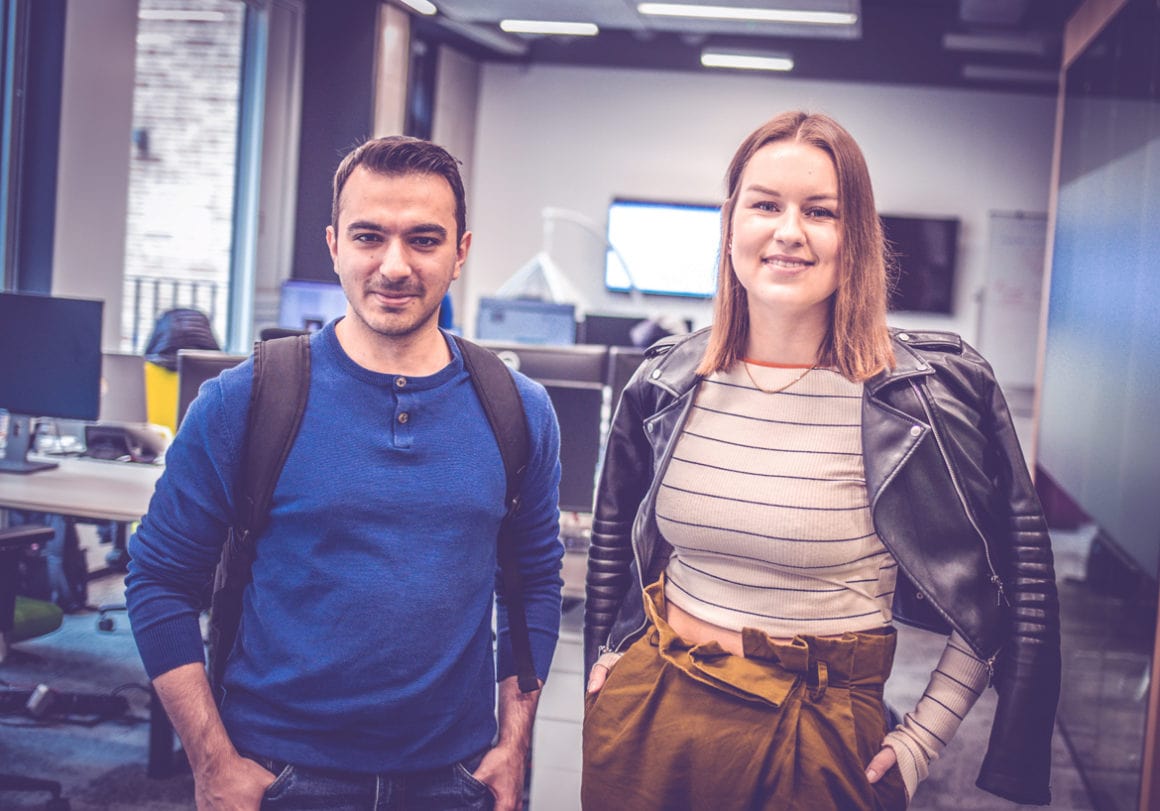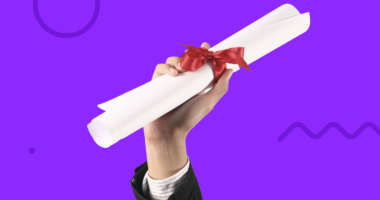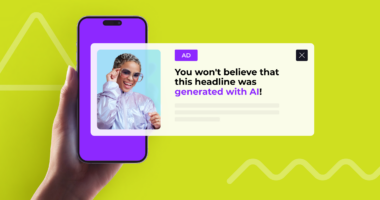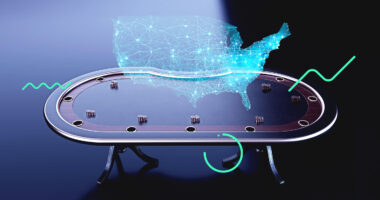The second part of our full interview with affiliate marketing legend, Manu Cinca is waiting for you! A super affiliate and an expert in performance marketing, now mostly known for the WTAFF newsletter.
He is about to tell you more about his key to success, what challenges he had to face as an affiliate and the boundaries in the affiliate space… Are you ready?
Just remember that this is the second part of our video interview. If you missed the first part, make sure you catch up before you dig into this fine piece of content below…
Buckle up!
If you’re hungry for more – Subscribe to Voluum blog!
Transcription:
K: What’s the dark side of being an affiliate marketer?
E: Well, since you’re your own boss and you’re risking your own money, you might have some nights when you don’t sleep so well because you never know what happens. Especially at the beginning, I know I had a few situations where you just like, wake up all of a sudden, 5 am when you usually want to wake up at 8 am, and you’re thinking “Is my campaign still alive?” and then you just cannot go back to sleep.
K: You have to check?
E: Yeah, you have to just check something and see what’s going on. And sometimes, it actually happens that it’s bad so it reinforces that, that you need to be online a bit too often. But nowadays there are tools that help with that, if the campaign’s performance drops, you can drop spend and things like that, so that’s good these days. Aside from that, I think that’s the biggest one – just being able to manage the risk and, you know, keep yourself, your mind fresh and not worry too much about it. Because you’re on your own in a way, actually, you’re pretty much on your own and not everyone wants you to succeed, at all, cause you’re competing against other affiliates. So being able to keep your mind fresh and focused and everything like that through the worst times as well, cause they’re gonna happen.
K: What boundaries did you set for yourself when you were doing affiliate marketing?
E: Not so much. I just try to, I work as much as long as I think I could make it work, so I don’t have any specific, I don’t have in mind anything that has to do like “Okay, so how much should I work? When do I stop? When is it too much?” But then, over time it was more like, okay, so if something after, I don’t have an exact amount of time, but let’s say after a month, if it’s not somewhat sustainable, or you know that it still creates a lot of discomfort and sleepless nights in some way, then it’s probably not ideal to continue with it. When it comes to affiliate marketing there are campaigns and offers that you can build sustainably, and there are some that need babysitting all the time and they’re not really healthy for you. So maybe the boundary would be: create something a little bit more sustainable, think about it, even if it takes a little bit longer to build kind of, that’s the main one.
K: And from within the industry, where there verticals or techniques you were like, “okay, I’m staying out of it, it’s too much for me”?
E: So I never touched anything that had to do with adult. Not really something against it, just seemed like, “okay if there’s no reason to, seems like not the most appealing one”. Some people really like it, so then it’s like, you can kind of see you’re not competing against each other so that’s a funny thing. But that’s the only one essentially. Was there anything else? I mostly did apps and sweeps, and the other thing is, it wasn’t so much so that “oh I don’t want to touch it ever or anything”, it was more like “this works, we’re gonna do more of what works”. But the adult one was the only one I was thinking – it’s not really one that comes on top of the options. Mostly because I think it’s just, explaining to people what you do, that’s the one that’s harder to explain overall.
K: So Manu, a poker wizard? Would you call yourself that?
E: No, no, no. I used to play quite a bit but not a wizard, I wasn’t that good. I know people who were that good though.
K: What is riskier, poker or affiliate marketing?
E: I think it’s poker to be honest. There are still many lessons that you can apply in affiliate marketing and in life in general, but I think the main issue with poker is that it can become more addictive. So it’s still gambling if you don’t control your emotions and if you don’t manage your money properly, you can lose way more. And it’s much more addictive, I think, than affiliate marketing. Because it’s a game, it’s made to be, I don’t want to say it’s made to be addictive, but games can be addictive. The adrenaline rush in it is, you get the rewards quicker, so I think that’s the danger of it mostly.
K: But don’t you have that also in affiliate marketing? You know, the rush of the fist positive ROI, of the first campaign profiting. There are steps there that can give you the same feeling, I guess.
E: Yeah, but they take longer to end up happening. With poker, every hand can do that. Depending on what you do, there are online formats where you can play like a, how many hands, like a 1000 hands an hour if you play 4 tables or so. So imagine the rush that you can get when doing that compared to affiliate marketing where it’s like, you spend one or two days setting up the campaign, then it takes 6 to 24 hours to get approval, that rush is not as huge as when every time chips fly at a table, so many times an hour.
K: What was the best $100 you spent in your career?
E: $100…
K: €100?
E: Yeah, I’m just thinking something that’s… Nothing exactly comes to my mind right now. It’s probably something that I use all the time somewhere… Maybe the keyboard that I use all the time, I haven’t changed it for 6+ years. But I have something for less than $100 that I know, for sure, I said “this must be the best money ever spent”. From Vienna, I traveled one time to Prague, and generally, when you travel by train, you don’t really think about reserving a seat. But this time I was like “there should be a lot of people around so I’ll spend the extra €3 to make sure I have a seat”. And it was so full that I was like “this must be the best €3 ever spent” because I could sit down for 4-5 hours and work on my laptop…
K: I was about to ask, did you do that…
E: And then everyone on the train was just like sitting, standing and even people fighting a little bit with each other cause there was some confusion with someone who booked a different train with a reservation and they wanted the seat in the next train that they took now with the same reservation with the seat but they didn’t have it… a lot of chaos there, of course people not very happy about it and I was like “well, this €3 let me work for 4 hours long on the way there, best €3 ever spent”.
K: What was the most precious or the most awesome thing you bought for yourself from money you earned in affiliate marketing? When you first made your serious money in the business?
E: I don’t have that in affiliate marketing, I have that only for poker to be honest. Because once I started affiliate marketing I was already pretty much, I kind of knew how much I want to spend on things and how much I don’t want to spend. In a way, affiliate marketing was nott the first success on my own in a way, in that sense, so it wasn’t like “okay, I need to reward myself now”. So actually, I only have from poker, that I bought my first smartphone, Samsung Galaxy S3 when it just came out, that was pretty cool. But then for affiliate marketing, I don’t have anything like that.
K: What was your most successful campaign ever?
E: So it was one… There were 2 that were pretty equal I would say. And they were, that started from the very beginning. I call them successful because they might not have been the ones that made the most money in the end overall but they were sustainable for a very long period. And that was: battery saving apps on display cause it was completely not misleading, a very happy advertiser, we could consistently do around $300 to $400 profit per day with them I think, maybe some more in good cases. Then, when they started not being so appealing, then, so like when the offer essentially, the advertiser said “we have enough, we don’t want it no more, we take it off affiliate networks”, then same style it was Android launcher, so you could customize how your Android looks a lot, and that was also, probably around a year, I would say, it also stayed as a live offer that just consistently delivers more than 3-figures profit per day really easily, just had to refresh banners.
K: You are interested in psychology?
E: True.
K: Does it help you to create campaigns which convert more?
E: Can definitely help you quite a bit. But I think it helps more on the side of understanding the dynamics in the industry, what people care about in the industry specifically, what’s in it for them. Answering that question is a little bit more interesting for the psychology part of things but of course it does help you create a little bit better campaigns because it helps you get into the shoes of the potential audience. And you have to keep in mind that depending on what products you advertise, there’s a different type of audience, and psychology helps you if you research enough, you realize, okay, how can you put yourself in those people’s shoes. But I think there’s psychology in general, you can be interested in things that are not really relevant for marketing. But if you look into things like “Influence”, I think it’s by Robert Cialdini, then another very good book that helps understanding this is Dan Ariely, I forgot the book name right now. But it’s on behavioral economics and those things can help you: you can understand pricing, what people care about, what they don’t care about, those aspects of psychology are very useful for either if you have your own product or if you want to advertise other people’s products.
K: So to conclude our talk, what’s the advice you have for beginner affiliates, for people who are just starting out and want to be successful in it?
E: Well, it’s such an “it depends” answer because depending on where you’re starting out, then you have different, you know… If you start out with a very stable financial situation, you can risk more, you can probably spend more money on communities, educating yourself. If you have not so much money, you have to spend a lot of time. And then, if you have certain skills that are useful, like coding skills are probably the best ones, the technical skills, the most useful ones, that can help you a lot so I would have different advice. But in general, it’s: be very reflective of what you did. So kind of plan out what you’re going to do, let’s say on day 1 you plan out what you’re going to do, then day 2 you execute it, but on day 3 you already start, you reflect on what you did. So, this is what I planned, this is what I did, this is what I expected to happen and it didn’t happen so let me make sure that I don’t do the same mistake again.
K: Adjust to reality.
E: Adjust all the time to the reality but be very methodical about it and don’t just assume that you remember things, write it down and plan it out, and actually do it. Don’t rely on your memory for these sorts of things cause we’re very bad at doing that as humans.
K: Thanks so much for it.
E: You’re welcome. Thanks for having me.
K: Thank you so much for visiting us. I guess that’s all for the interview. I don’t know what to say else.
E: And if you post it on YouTube you can do the thing with like, leave us feedback on Youtube, things like that.
K: Yeah exactly. Click, like and subscribe! Or is it like…
E: If you don’t want to leave that, leave feedback, things like that 😉




